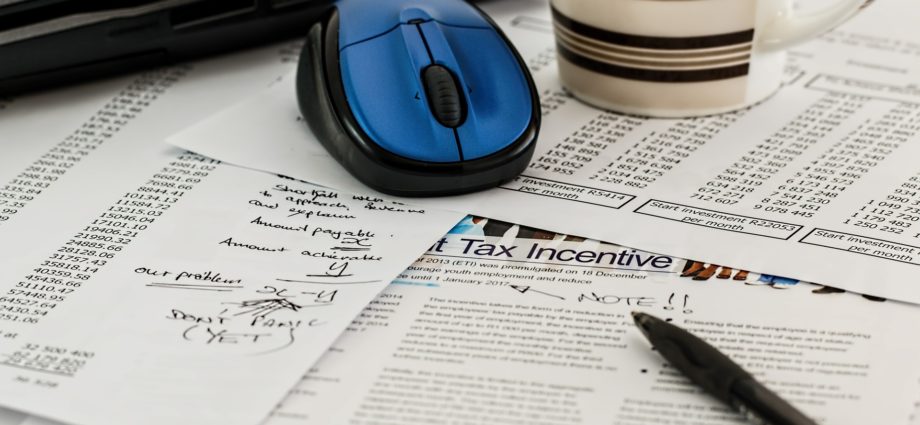One misstep could hold up your tax return and maybe even your refund for weeks or months. Even worse, you could end up with interest and penalties so taking the time to ensure you avoid any tax mistakes is time well spent.
- Tax Mistakes To Avoid
Here is what you can do to make sure you don’t make some common tax mistakes.
Never miss a deadline
Do you know that you can ask for an extension by filing Form 4868 before the deadline to get more time? Otherwise, you’re in for a 5% penalty on the amount due for every month or partial month your return is late. The maximum penalty is 25% of the amount due. You’ll also owe interest on taxes outstanding after the deadline, even if you get an extension. Additionally, the IRS might charge you a late-payment penalty, normally 0.5% per month on the outstanding tax not paid by the filing deadline, with the maximum also being 25%.
Make sure the numbers are right
The IRS uses your social security number to cross-check your data with your employer and your bank. The wrong number can lead to your return being rejected. The wrong bank account might not make that much harm but it will surely result in a delayed refund.
Make sure the names are right
From your own name to the entity you are sending your check to, make sure the names are right. As obvious as this might seem, it’s so easy to get even your own name wrong if you don’t use your full legal name. You don’t want them seeing it as a red flag or the IRS not being able to cash in your check and hitting you with a penalty.
Make sure you sign the form
An unsigned return is an invalid return. If you are filing with your spouse, he or she must sign the form as well.
Make sure you are sending you return to the right address
Returns that include payments go to a different place from returns that do not include payments so save yourself a headache.
Don’t save money on stamps
Make sure that the big envelope has all the stamps it needs to make it to its destination as otherwise, the U.S. Postal Service might send it back and that will cost you more than a few cents if your return ends up being late as a consequence.
Fix mistakes fast
You can never afford to ignore the IRS. To amend a tax return, file the Form 1040X to fix your error as soon as possible and attach any relevant forms to it.
2. Tax Tips To Follow
There are many simple maneuvers that could reduce what you owe to the IRS.
Tweak your W-4
This is a form you give to your employer, saying how much tax to withhold from each paycheck. If this year’s tax bill is high, you can raise your withholding so you owe less when it’s time to file your tax return for next year. You will avoid another unpleasant surprise. If it’s vice versa and you got a huge refund, you can do the opposite and reduce your withholding to avoid needlessly living on less of your paycheck throughout the year.
Save for junior’s tuition
Your tax bill will be lower if you save up for when your kid goes to college.
Give back to the community
Charitable contributions are deductible, even if they are not in cash. If you’ve donated clothes, food or household items to a bona fide charity and you got a receipt, these can add up to significant deductions.
Keep medical receipts
If had other costly medical expenses, you should be able to deduct those that are more than 7.5% of your adjusted gross income for that tax year.
3. Tax Credits
Making your household more energy efficient is a great way to save money as it will both qualify you for a tax credits and result in lower Toledo Edison utility bill and maintenance costs.
Currently, there are two energy tax credits currently available for 2020 Tax Returns. The installment in question must be put into service during a given tax year to be claimed on a return for that year. If you installed and put into service any of the following during 2020, you can claim it on your 2020 Tax Return:
- Solar panels or other form of solar electric upgrade
- Solar water heating
- Small wind energy
- Geothermal heat pump
- Fuel cell
If you made energy saving improvements by installing an earth-friendly energy source, you may be able to claim the Residential Energy Efficient Property Credit for a percentage of the total cost you paid. The good news is that there is no dollar limit on the credit. Besides the house being located in the US, you must own the home but it does not have to be your main home.
If you made certain energy-saving or energy-efficient home improvements in 2020, you could get a Nonbusiness Energy Property Credit for up to 10% of the purchase price of qualified products, up to a maximum total of $500 amount for all tax years after 2005. However, a married couple can file separate returns for separate properties with two forms and claim up to $1,000. To qualify for the credit, the energy-saving improvements must have been made on an existing home in the US that was your primary residence which you owned.
Takeaway – Take the time to understand your tax situation. An unexpected tax bill can ruin anybody’s day so make sure to do all you can to avoid that unpleasant scenario. If you ever received one of those, you know taking the precautions to avoid them is worth the effort.
